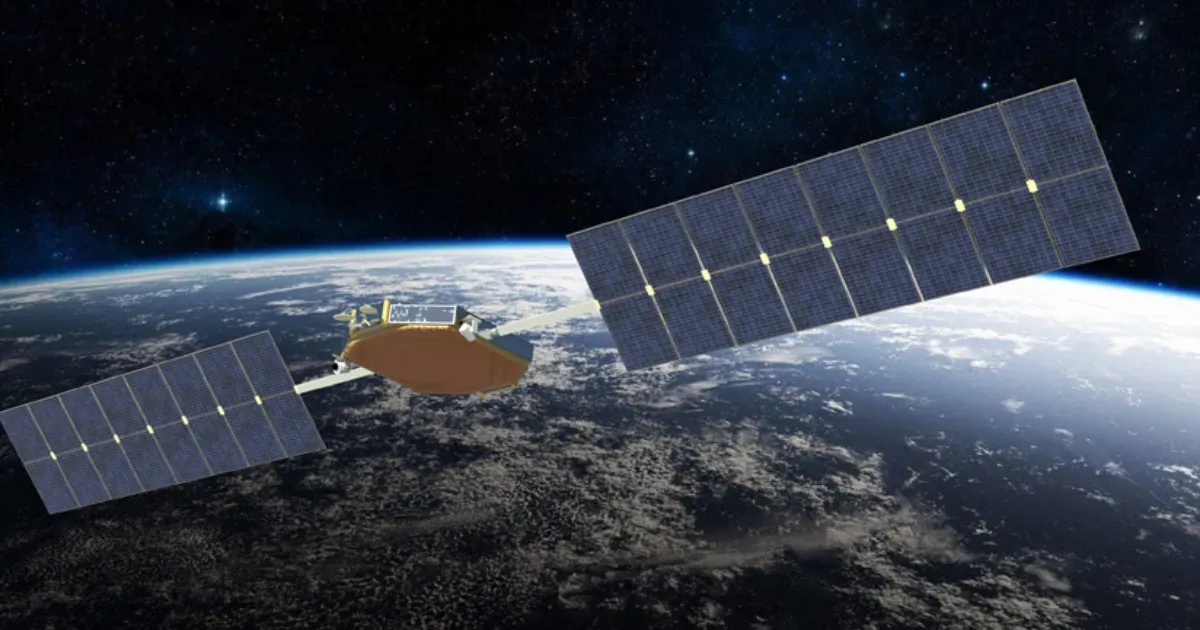SpaceX buys $17 billion in spectrum licenses from EchoStar

Elon Musk’s SpaceX announced Monday that it will purchase wireless spectrum licenses from EchoStar Corp. in a transaction valued at $17 billion, a move that could dramatically accelerate the growth of Starlink’s direct-to-cell satellite network and next-generation 5G services.
As part of the agreement, EchoStar’s Boost Mobile subscribers will gain access to Starlink’s direct-to-cell coverage, helping extend wireless connectivity to underserved and remote areas.
Supercharging Starlink’s Capacity
The deal will allow SpaceX to build and deploy upgraded, laser-linked satellites that the company says could boost Starlink’s network capacity by more than 100-fold. These satellites, described as “cell towers in space,” will provide a major leap in mobile coverage and speed.
“With exclusive spectrum, SpaceX will develop next-generation Starlink Direct to Cell satellites, which will have a step change in performance and enable us to enhance coverage for customers wherever they are in the world,” said Gwynne Shotwell, SpaceX president and COO. “This is about ending mobile dead zones globally.”
SpaceX has already launched over 8,000 Starlink satellites since 2020. Of these, roughly 600 direct-to-cell satellites have entered orbit since January 2024, laying the foundation for the company’s mobile network ambitions.
Market Reaction
Shares of EchoStar surged 19% in early trading on the news. By contrast, U.S. wireless carriers took a hit: AT&T and T-Mobile both dropped more than 3%, while Verizon slipped over 2%.
The move comes as mobile data usage continues to soar. In 2024, Americans consumed a record 132 trillion megabytes of data — up 35% from the prior year, according to CTIA.
Starship’s Role in Expansion
SpaceX’s giant Starship rocket is expected to be central to deploying these larger satellites. The next-generation launch vehicle, under development for a decade, has been undergoing increasingly complex test flights. The company expects Starship to begin its first operational Starlink missions in early 2026.
FCC Scrutiny and Spectrum Battles
The deal follows months of scrutiny from the Federal Communications Commission (FCC), which had questioned EchoStar’s use of mobile-satellite spectrum and whether it was meeting its 5G obligations.
An FCC spokesperson welcomed the development, saying the agreements with SpaceX and AT&T could “supercharge competition, extend innovative new services to millions of Americans, and boost U.S. leadership in next-gen connectivity.”
EchoStar recently sold spectrum to AT&T in a $23 billion deal and maintains operations in Dish TV, Sling streaming, Hughes internet, and Boost Mobile.
SpaceX will fund the $17 billion transaction with a mix of $8.5 billion in cash, $8.5 billion in stock, and by covering about $2 billion in EchoStar debt interest payments through 2027.
The move also gives SpaceX more independence. Until now, Starlink has relied heavily on spectrum leased from mobile carriers like T-Mobile. With its own frequencies, the company can scale services faster and reduce dependence on traditional telecom partners.
Competitive Landscape
The deal highlights intensifying competition in the U.S. connectivity market. In May, the FCC approved Verizon’s $20 billion acquisition of Frontier Communications, while the telecom giant previously spent $52 billion in 2021 to secure additional spectrum.
With the EchoStar deal, SpaceX positions itself as a disruptive force capable of reshaping not just satellite internet, but also terrestrial mobile networks — challenging legacy telecom operators in one of their most profitable markets.





